
Degrees, certificates and other educational documents issued in Germany have no legal force abroad. In practice, this means that if such a document is not legalized, it will not be possible to enter graduate or post-graduate programs, or to get a job at a public institutions.
If you plan to use your German degree in a country that is a signatory to the 1961 Hague Convention, it can be legalize it through a simplified procedure known as Apostille.
Why and in what cases is an apostille needed?
The apostille, or the “Hague apostille” is a certificate that authenticates the origin of a public document (e.g., a birth, marriage or death certificate, a judgment, an extract of a register or a notarial attestation). It confirms the authenticity of the signature and the authority of an official who signed the public document.
Commercial documents cannot be apostilled. Therefore, if you received a certificate of educational courses from a private company, which does not have an educational license, you will not be able to certify it with an apostille. Only documents from certified educational institutions with an official state license can be legalized through the apostil procedure.
At the same time, it should be kept in mind that Apostille confirms the fact of document issue and authenticity of signature of an authorized official, but it does not imply automatic access to work in specialized spheres.
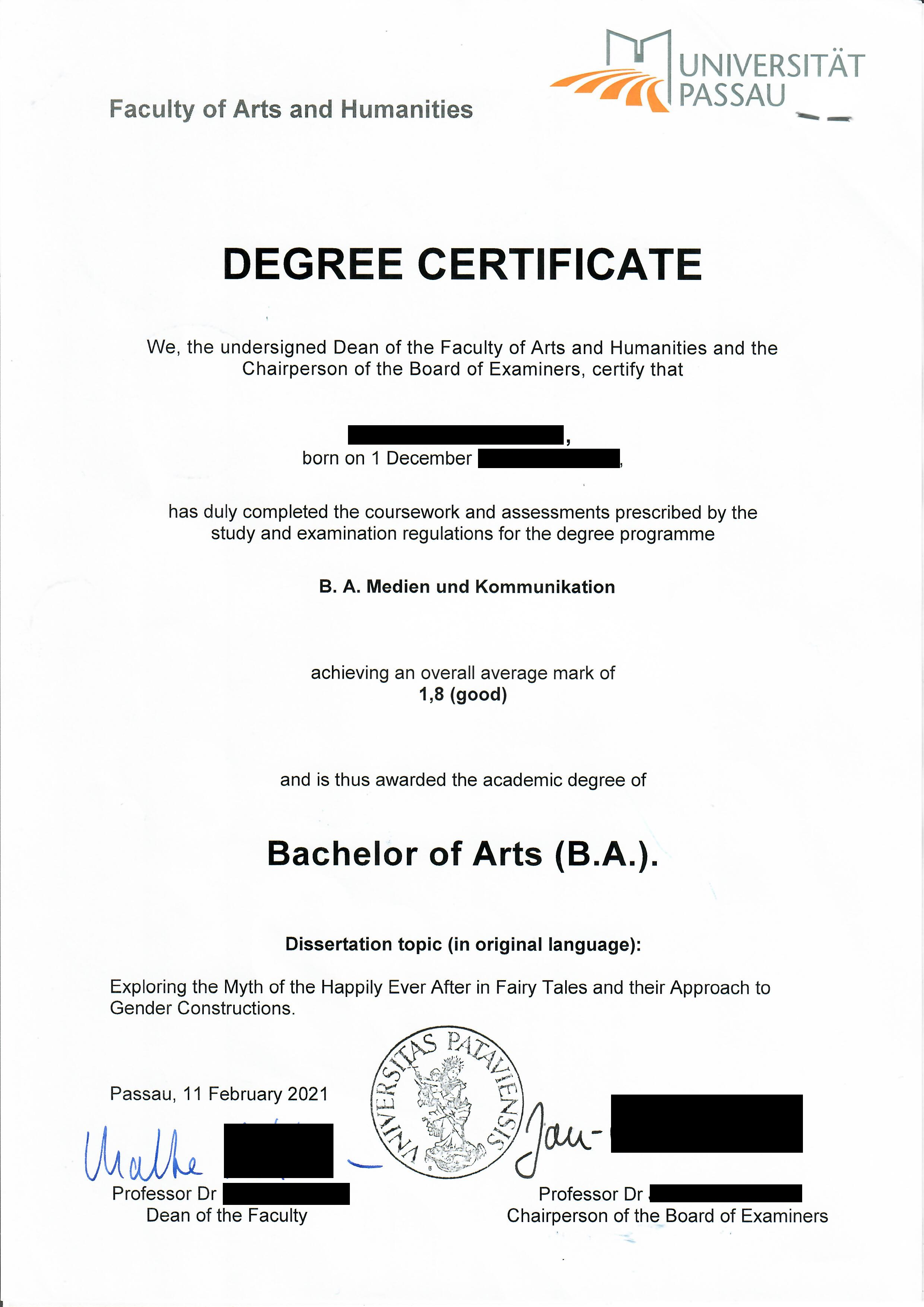
An apostille stamp can only be affixed in the territory of the country in which the document was issued. It cannot be done through diplomatic or consular offices. The system of certifying documents by apostille in Spain is quite simple: the apostille is placed either on notarized copies of degrees, which are taken from local notaries, at the notarial board of the autonomous region where the notary is registered. Or on the original diploma, when the university itself certifies the degree in the office of the decedent. The second way is much more complicated and expensive, although for foreign authorities, as a rule, there is no difference whether the apostille is on the notarial copy or on the original.
When is an apostille not needed?
Most commercial organizations, when hiring employees for positions that do not require special access, will not require them to legalize their diploma through an apostille. In addition, the degree does not need to be apostilled if there is a special treatment between Switzerland and another country (such as in the case of EU countries, where there is a unified educational system throughout the EU).
The process of obtaining an apostille for degrees in Germany
The process of certifying documents with an apostille in Germany can be quite complex. Firstly, the diplomas themselves do not have a standardized format. Secondly, the conditions for obtaining an apostille on educational documents are determined by the government of the Federal State where the diploma was issued. Therefore, it is not possible to apostille a diploma from Berlin in Cologne or Munich. Here, we will consider an example with a diploma from Lower Saxony.
The first step is to send the document to the Studentensekretariat or Immatrikuationsamt of the university (student secretariat) for pre-certification. The pre-certification process takes about 2 weeks.
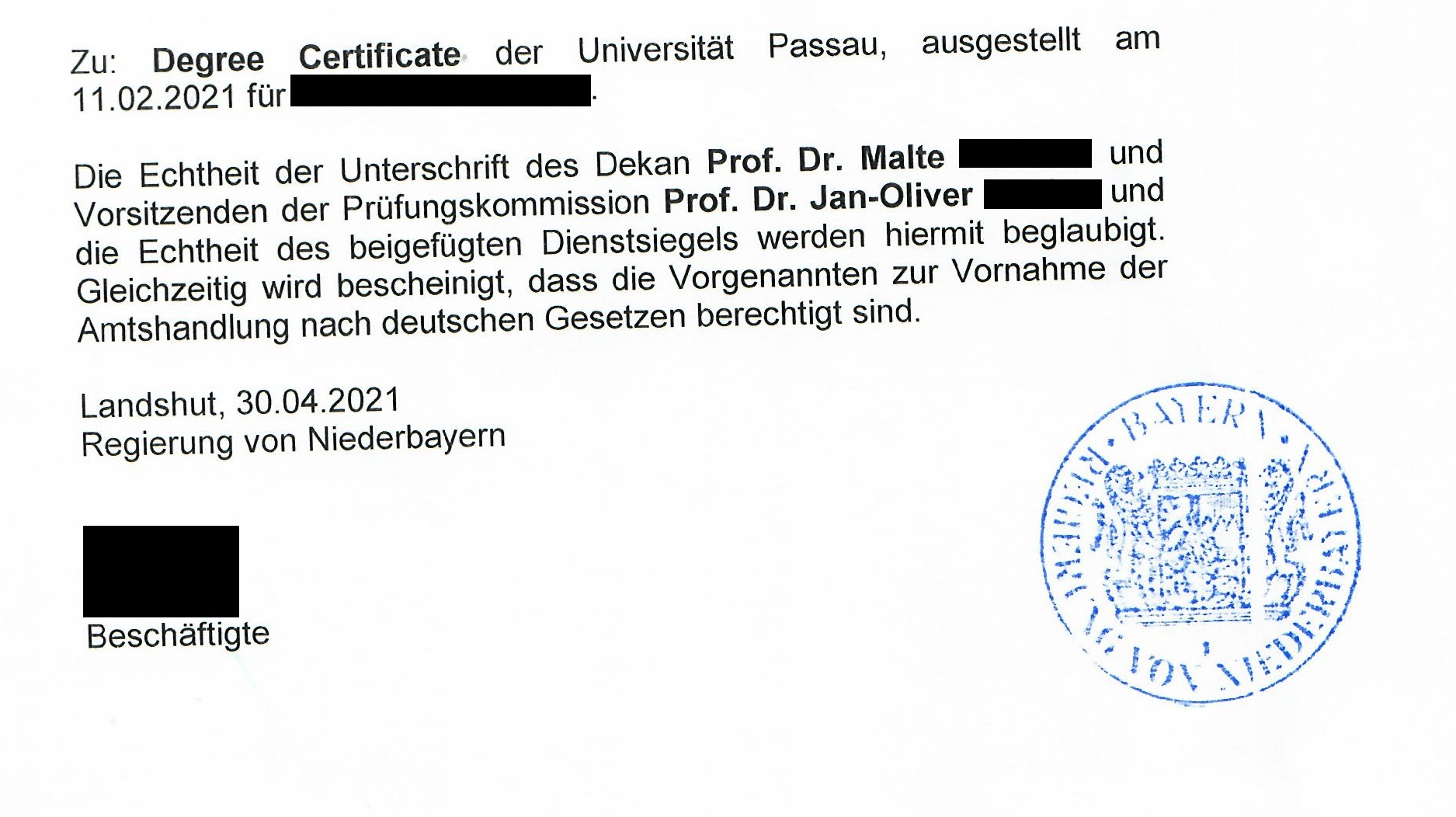
The second step is to have the apostille stamped at the police headquarters in the district of the state of Lower Saxony where the university is located. This is the longest stage and can take several weeks or months. In other Federal States, different public authorities may be responsible for the apostille, e.g. the authorities of the local government, the courts or the local offices of the Foreign Office.
The apostille can be issued either on the original document or on a certified copy that is reissued by the university. This all depends on the requirements of the particular German federal state. It is also worth bearing in mind that the diploma and its supplement are apostilled as two separate documents in Germany. It is not possible to staple the diploma with the supplement and have it certified with a single aposti
Documents required for legalization:
- The original degree;
- If necessary, the original diploma supplement.
The appearance of the apostille in Germany is not uniform and depends on the state authority and the federal state.
What is an apostille?
What is an apostille? Why do I need an apostille? How do I get an apostille? - Our video will explain everything you need to know about the apostille. If you have a document that needs to be certified with an apostille for use abroad, Schmidt & Schmidt will assist you! We provide apostille services in more than 100 countries worldwide.
The appearance of the apostille in Spain is unified in all areas and differs only in the stamp of the collegia.
If you need to have a document issued in a foreign country apostilled, contact Schmidt & Schmidt.
We provide apostille services in more than 100 countries around the world.
Document delivery
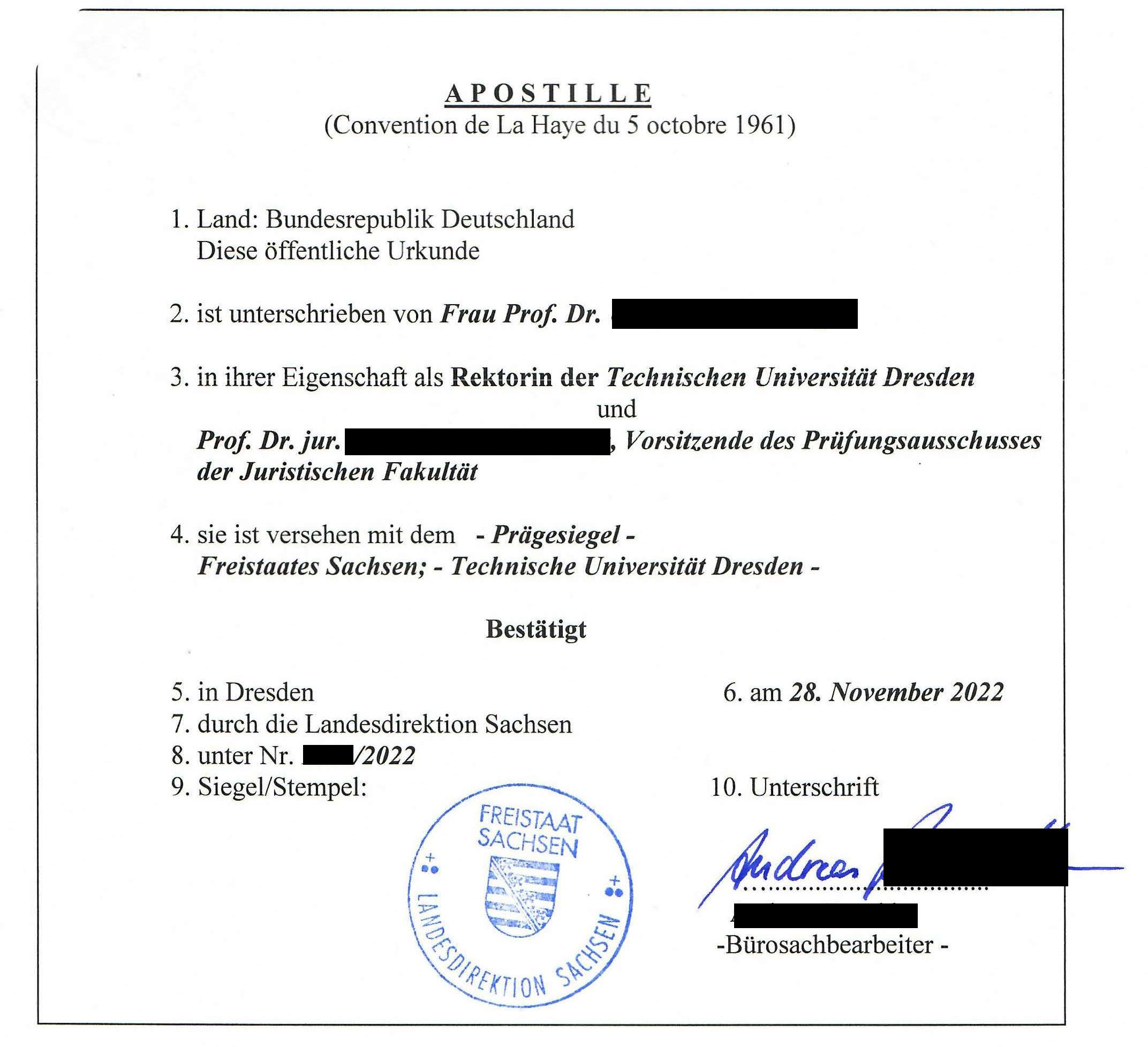
Since we will definitely need the original document in Germany, we will need to send the document directly to Germany. The cost of such courier delivery is calculated on the basis of courier services' rates.
The ready-made documents can be delivered by courier worldwide.
Consular legalisation
If your diploma is to be used in a country that is not a party to the Hague Convention, such as China, the United Arab Emirates, or Egypt, the document is subject to consular legalization. This is a more complicated procedure than apostilization.
The consular legalisation procedure for German diplomas, as well as the apostille procedure, is quite complex. Requirements are imposed both by the state authorities in the federal state where the diploma was issued and by the consulate of the countries where you intend to apply the document. Let us look at the example of a diploma from Bavaria for use in Qatar.
The first step is to send the diploma to the government of the county of Bavaria where the university is located, where an authorized employee puts a special stamp of pre-legalization. This step can take from a few weeks to several months.
The second step is sending the document to the German Federal Foreign Office for clearance. This step can take from 6 weeks to several months.
The third step is certification at the embassy of the destination country (Qatar). As a rule, it takes 5-15 working days, depending on the regulations of the embassy.
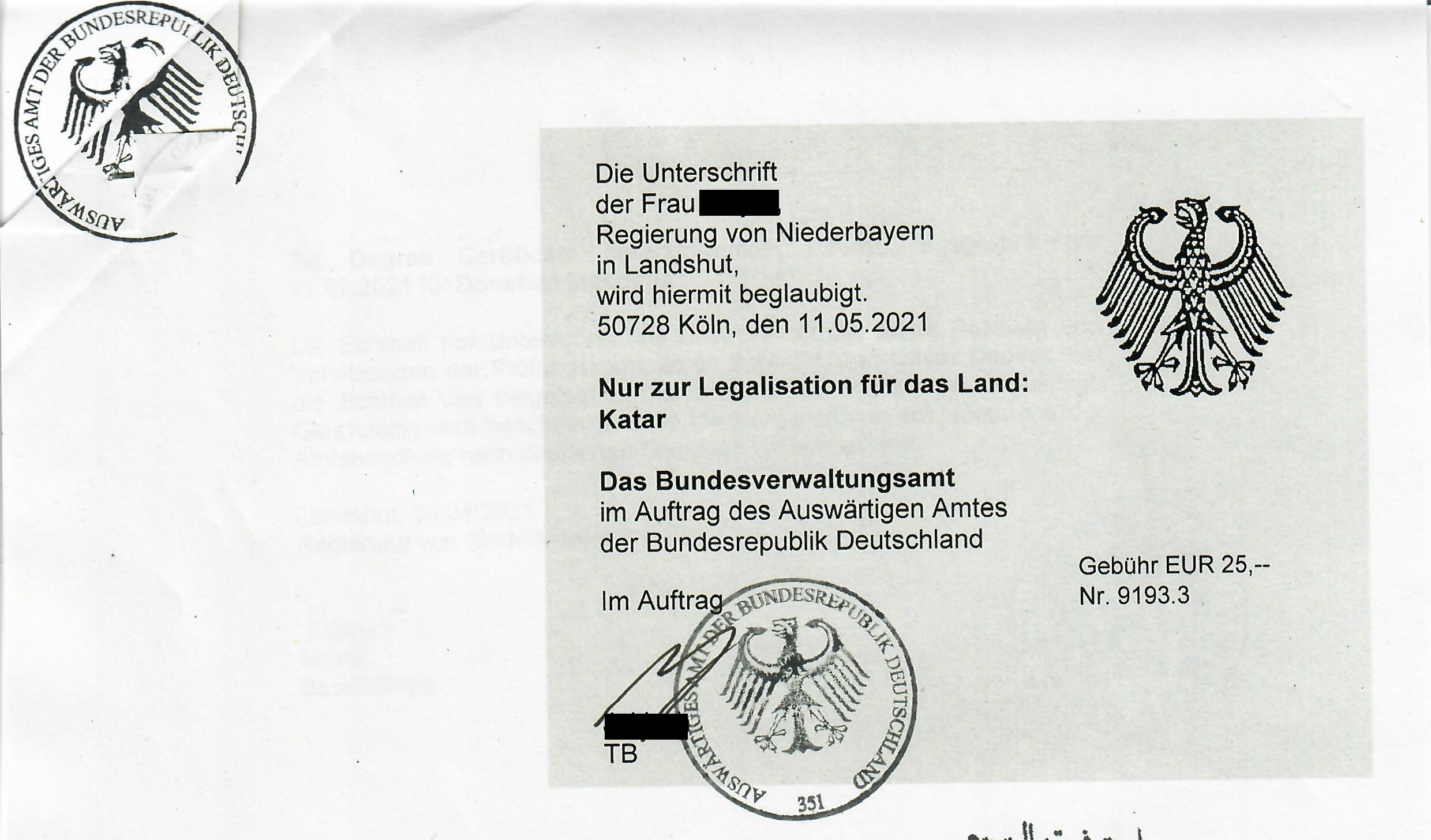
The first step is performed in the federal state where the document was issued. The second step is the certification at the Federal Office. The third step is usually in Berlin, where the embassy is located.
Also note that the number of stages, may increase, depending on the requirements of the federal state and the embassy. Sometimes a sworn translation into the language required by the embassy is added, and sometimes pre-certification by an intermediate state authority of the German federal state is required.
It is necessary to keep in mind that the country of the document's destination must be indicated on the certification by the German Federal Foreign Office. It is not possible to legalize a diploma with one mark of the Foreign Office for several countries at once.
Translation of an education documents
In order to use an education document abroad, after legalization it is necessary to make an official notarial translation. If the translation is made by a certified translator in Spain, the official authorities will not accept it.
The translation of the document must necessarily go through a verification procedure. This is a process in which the prepared translation is sent to the graduate to verify the correct spelling of the first and last name, the disciplines studied and the topics of research papers, since there may be inaccuracies in the translation.
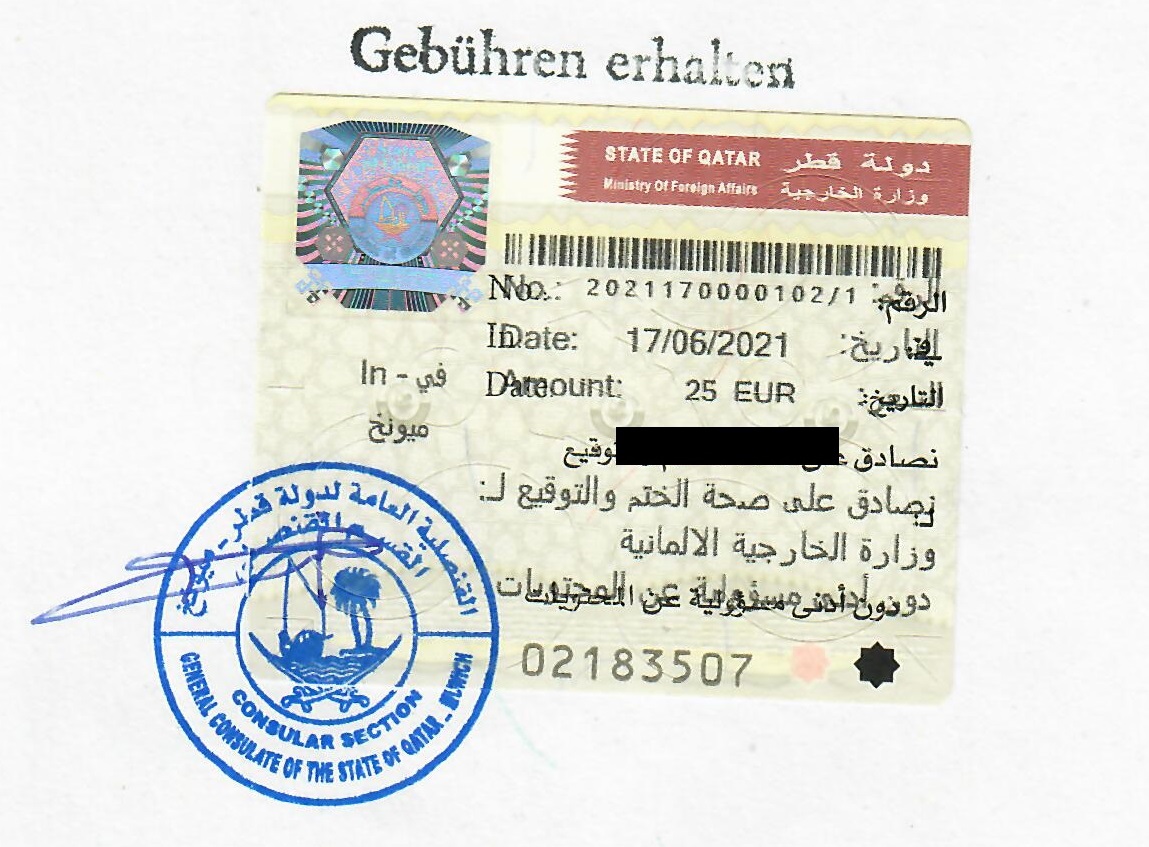
The translation of a document must always undergo a verification process. This is a process in which the prepared translation is sent to the graduate to verify the correct spelling of first and last names, the subjects studied, and the topics of research papers, as inaccuracies may occur in the translation.
A notarized translation may need to be filed with an apostilled notarized copy.
What is consular legalization?
In our video we are explaining what consular legalization is and where to apply for it.
Schmidt & Schmidt will assist you in all issues concerning the legalization.
Schmidt & Schmidt offers legalization in more than 80 countries all over the world.
You can always contact Schmidt & Schmidt, we have extensive experience in the legalization of a variety of documents and we provide all the necessary services in this area, including the making of notarized copies, translation, preparation of the necessary powers of attorney, legalization of documents before government agencies and foreign consulates, as well as delivery of finished documents to most countries in the world.





